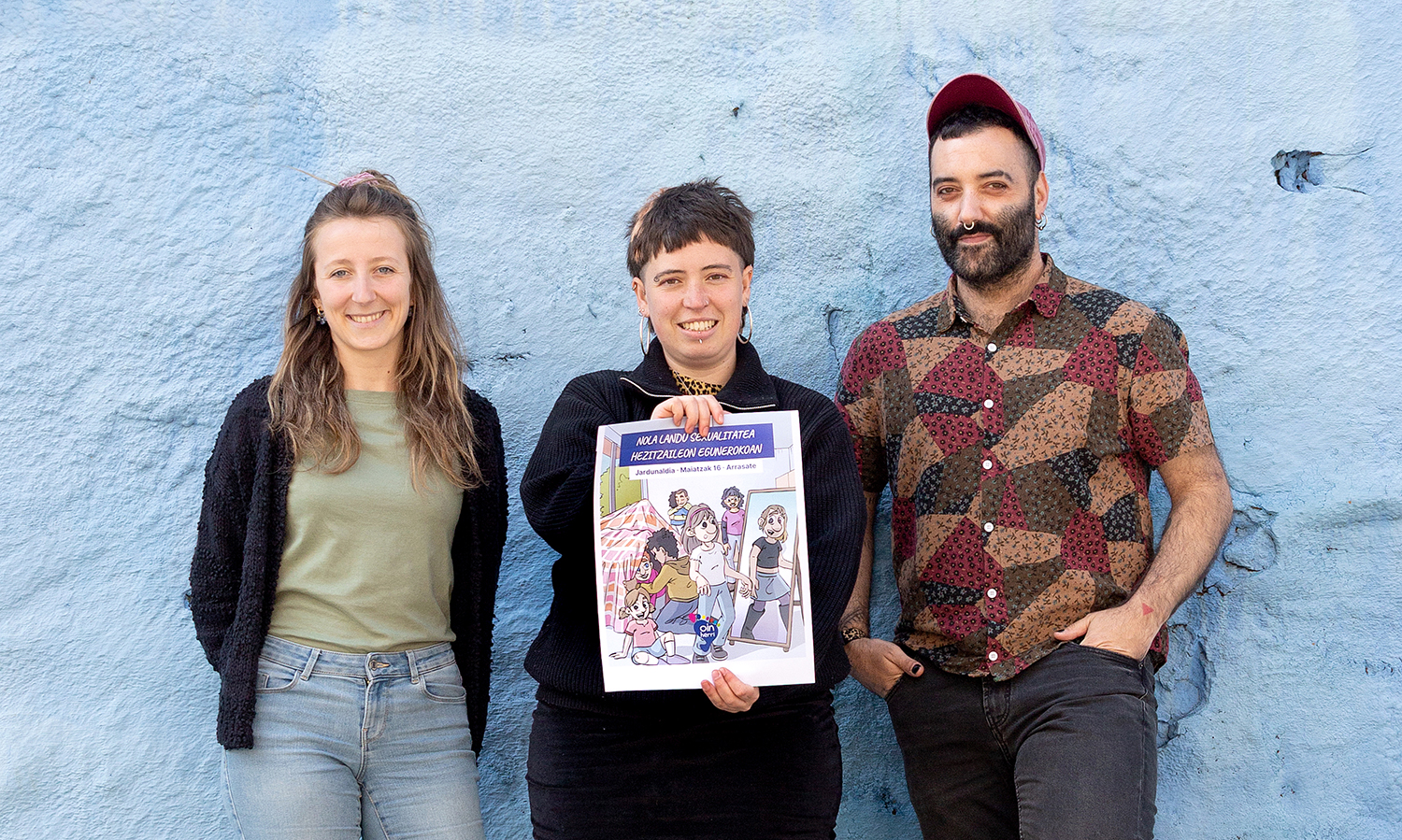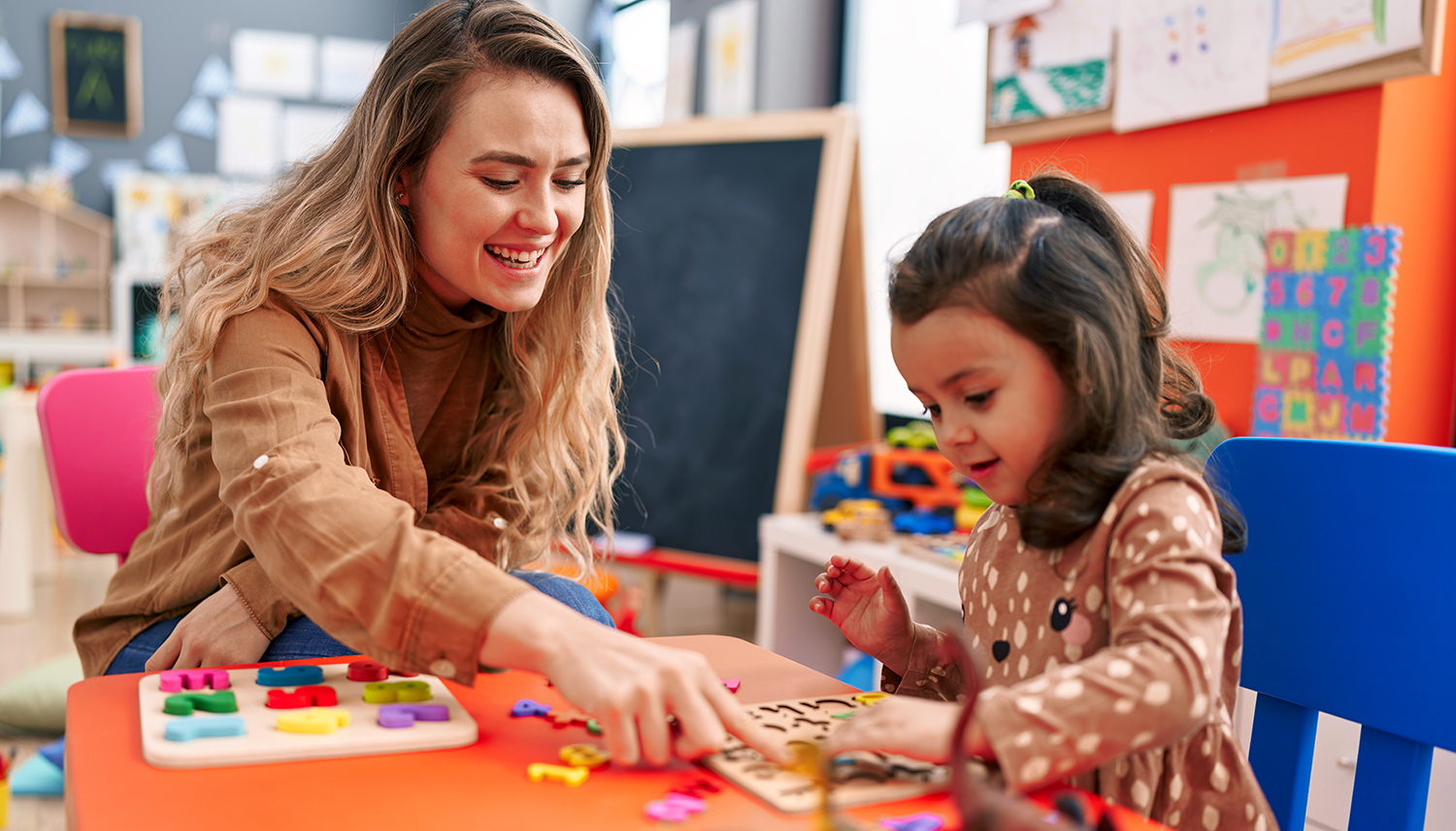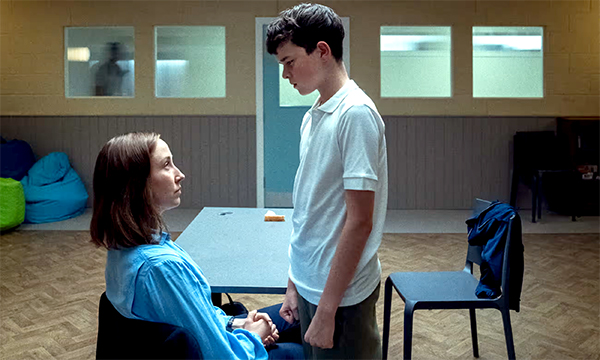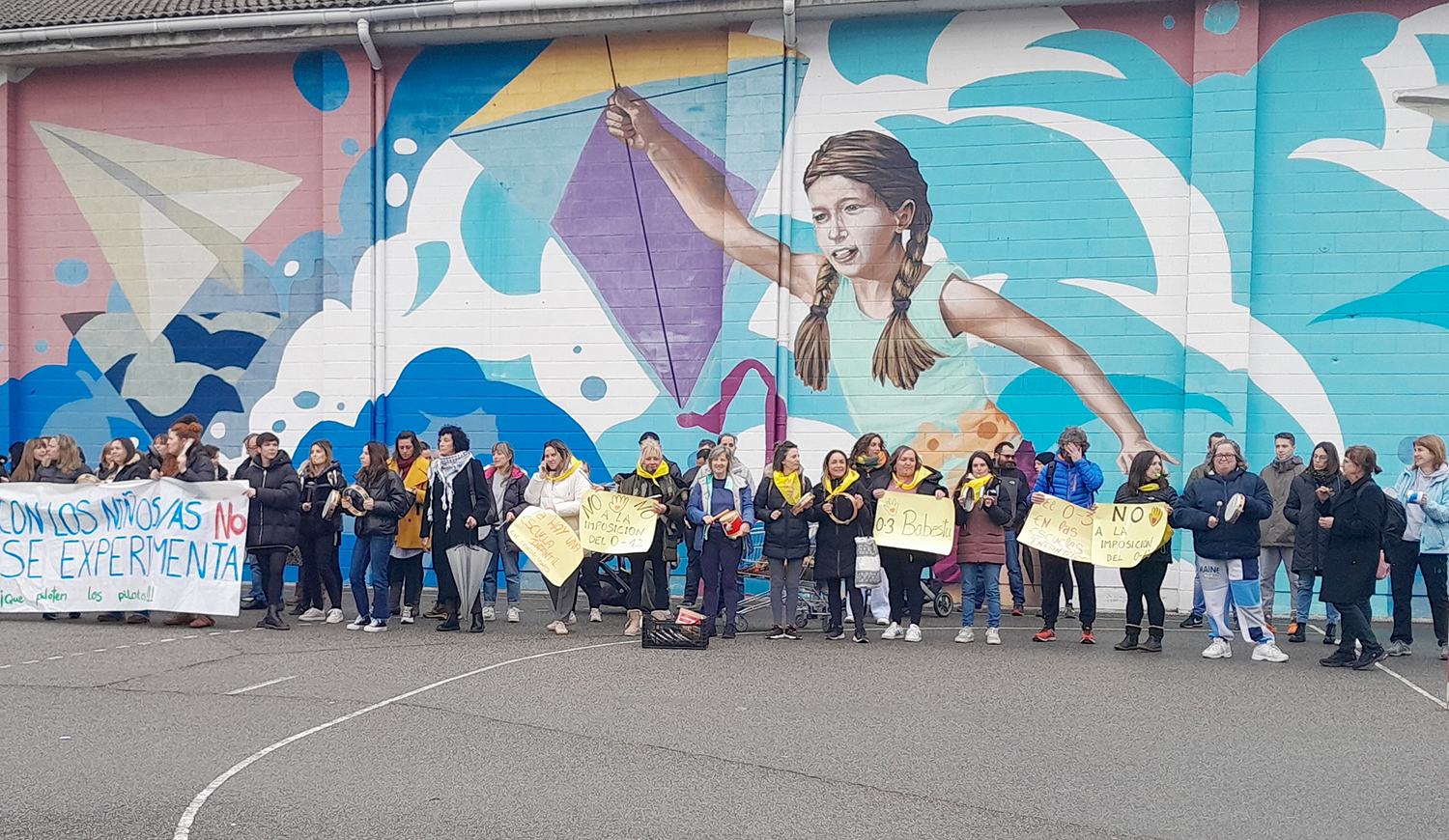"Children will inevitably break borders to learn about life"
- On the appointment comes a father full of questions, how do our expectations affect children? How do we manage conflicts, limitations and our fears? Have the roles of mother and father changed in these years? Do we have feelings that we're doing wrong? How do we make our children happy? With the help of Esther Martínez Gallastegi, a member of the Argi-begi mediation association, we have received many keys of interest.
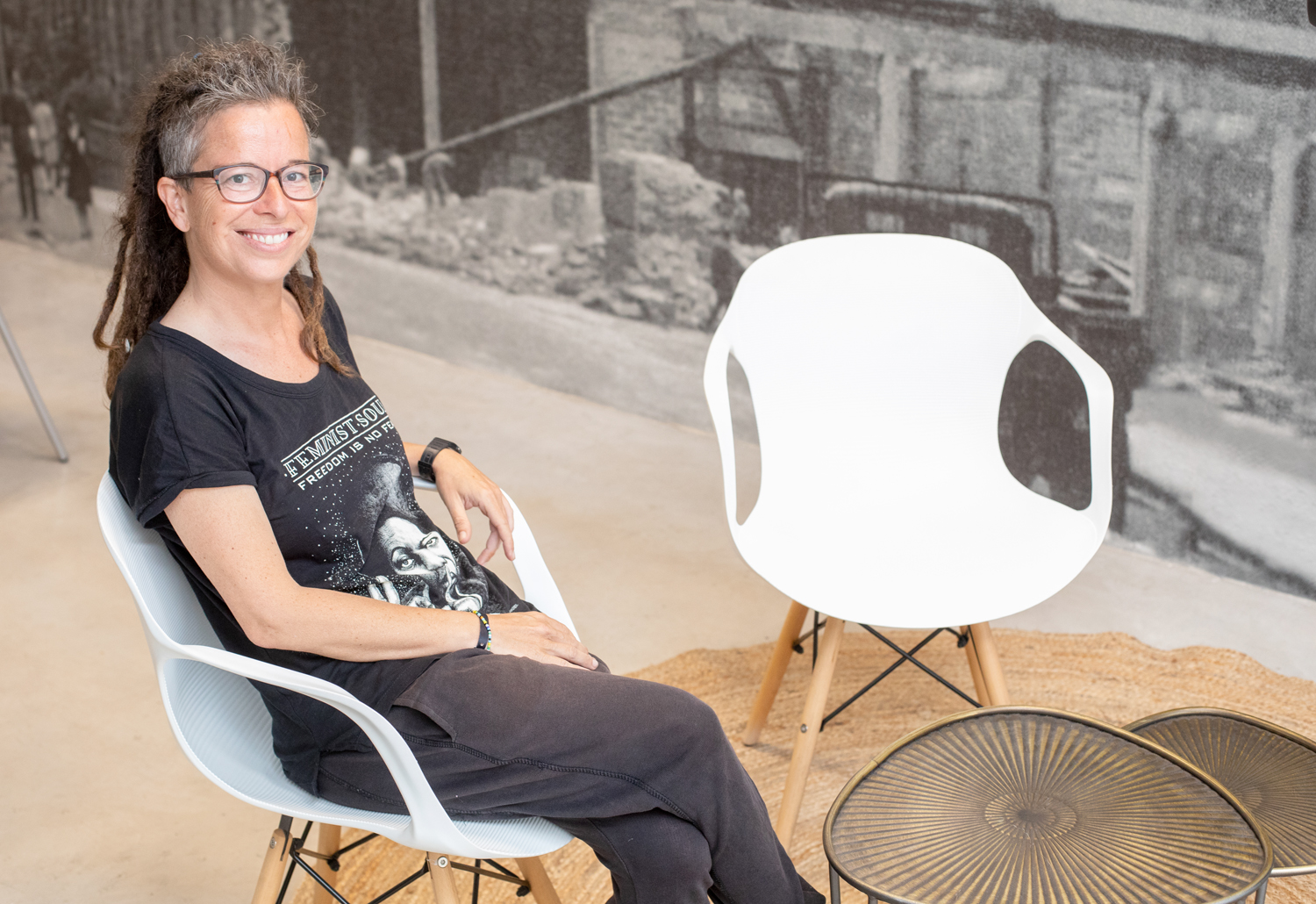
To what extent do we turn children into “products”, depending on planned and anticipated lives before birth?
When we decide to be parents, we start to plan the lives of children based on the criteria of each parent, and yes, we set a path, more conscious or more unconscious. It may be that some parents want children to get what they have not achieved, that parents want to repeat what they have achieved, but also that children decide to participate in decisions: for example, I can encourage my child to do sport, convinced that it has value, but I will allow him to choose the sport that he wants.
And to what extent do parents' expectations and desires affect their children's lives? What to do with those expectations?
How we see them, it really affects them. When we talk to children, we see that when expectations are very high, for example, they push themselves to reach the expectation, and it's related to the labels: if I put a label on my child, it's very quick and saliva, and if he doesn't look like that, it will influence self-esteem. Even if the expectation is not positive: if I repeat it is vague, it will have a vague behavior, because for her the most important thing is for me to see it. How do we seek balance with expectations? Accepting what they are, we have to know how to really see what their skills are and what their needs for improvement are and accept them because accepting what they are is what they need from us.
"Children need to feel understood. For that we have to look down because things don't live as we live them."
We point the child to English, to swimming... In a society always compared to the next one, does the fear of the child being left behind live?
But we have to be aware that we are all different, if we are not going to fall into that competition. However, each situation may be different: there are families that for economic reasons cannot appoint their children in this type of activity, other parents are so busy and stressed, that they need extracurricular activities so that children are where they are... When we talk about children from Children and Primary, if you ask them what they want to do in the afternoon, they will answer “be with you” because it is what they need.
On the other hand, this type of actions can be very useful, for example, if you have difficulty being admitted to the school group, because it opens the possibility of being accepted in other spaces and having relationships and friendships. Motivation is fundamental: if the child is not motivated in this extracurricular activity, we are putting an obstacle. Recently, a teenager told me that his mother wanted me to follow a certain sport to win the Basque Country Championship, but the teenager didn't want that.
If we ask what we want for our children, “happiness” will be one of the most repeated answers, but do we understand it differently? Or what to do to achieve that happiness?
All families are different, the values, habits and educational models we have, and also the ways we understand happiness. But all families have two keys to achieving this happiness: on the one hand, self-esteem, such as the acceptance and love of the child, which when he leaves the door in the morning will have a solid foundation to face the challenges he has, even in spaces where he does not feel accepted, because the child will not be accepted in all spaces. And on the other hand, autonomy, letting children make decisions and make mistakes, because we are there to do that accompaniment.
"Children learn what they see, not what we tell them."
In order to protect children, do we find it difficult to give autonomy?
It's hard for us to see the frustrated kids, because when they have a hard time, they get inside. But there's no other way to learn: to develop resources in the face of frustration, you have to get frustrated and hear no.
Then you have to set limits, but what limits and where to set the limit, we see them diferentes.Las limitations and standards that are set at school, at work, at home, etc. are
those who are oriented towards coexistence, so that all the relations we maintain are respectful. Children also need limitations to develop security, to learn to self-regulate. We put the rule at home, but what we want is that it should be acted in that way when it is not at home; at home we put a rule of respect so that on the street you also play with others, and also so that you know that others have to be respectful of él.El child will break the limits naturally and we have to say “no, hence not, is the way”.
Because it is common to break borders and tighten the rope…
Because the child does not know where to go. You have to keep in mind that an adult's brain is not like a child's brain; we see many things easily, but they don't see them that way, and they're going to inevitably break the boundaries to learn about life and become aware of its consequences. Because when we set limits it is important to realize the consequences: you decide how to act, with this behavior you will have the following consequence, with this other. It happens in life: our behaviors have consequences.
"When children who accept and love how their parents are leave the door of their home, they will have a strong foundation to face their challenges, even in spaces where they do not feel accepted"
Managing children's conflicts and problems requires patience. Sometimes, at the fast pace of each day, it is easier to avoid “express management” or conflict. Conflicts
are common to all families and natural, meaning that a family member does not feel well and that something needs to be changed to make the person or group feel good. Conflict is important and if we say that we are always the same, if we are avoiding conflict, we are not doing well. If I realize that at home there is a situation that creates tension in the everyday, I have to stop and analyze what happens, and then I will ask for the involvement of all family members to deal with the situation. If something doesn't work, I can't ask my child to change it, I have to act differently to overcome that repeated conflict.
And when there is a moment of nervousness or tension around the moments that you refer to, we have to have a premise in the head: the more nervous, the quieter. We are an example and children learn what they see, not what we tell them. Nothing happens if I get nervous in a moment, but if I identify that I am generating more tension with my attitude, I have to reflect and change my behavior.
In case of impossibility, to what extent do we access screens?We are
seeing increased awareness and concern on the part of parents on this issue, and gradually we are seeing other ways of handling the issue, although we have all fallen once on the conflict management screen. With screens it happens that we do not face conflicts: what is happening stops at that moment, but it will be repeated later. In addition, when we put ourselves in front of the screen, there is no emotion management, there is no space for reflection, and we are seeing it: the longer time passes in front of the screen, the more difficult the child has to manage emotions, angry control, etc. And that's what the children themselves tell us.
As I was preparing this interview, I have seen an article about invisible violence: shouting at the child, threatening… that violence is invisible. We have all had a cry or a threat, however. Not the
invisible, it is violence that you see, and, as you say, we are people and at some point it has happened to all of us, but when it happens, we have to ask the child for forgiveness so he sees that it is not proper conduct. It is screamed for the remote to hear him; if I use this resource when I have the child next to him, I am using it to get above him. Escaping a cry is normal, the important thing is to identify it: if you identify that it has happened to you, you have the possibility to change it so you don't act this way the next time. Same with the child: if at some point you have that behavior, nothing happens, you ask for forgiveness and you try to act differently next time, you learn what you see, we said it before.
"Conflict is important, and if we say we're always the same, if we're avoiding conflict, we're not doing it right."
How many parents have you met with the feeling of guilt, because they think they're not doing well?
When we have parent schools, it's usually a pretty normal feeling, and it's a feeling that we have to get rid of, because it doesn't help us move forward; we have to recognize that we're not perfect, that we make mistakes and nothing happens, life gives us opportunities to act better and we have to take that path. What helps the most in these cases is to create spaces for reflection like the schools of parents and share their experiences, because you realize that in the house next door they feel similar, and the parents, communicating and helping us, can lose a lot of weight.
Experts classify a large number of parental prototypes (authoritarian, too permissive, overprotective..) and relate the consequences of being a parent in one way or another in the child. On the contrary, I have read it recently, “you are not entirely responsible for what will happen to your child.” Should we take it quieter?
If there's parental influence, but we have to be careful because we often judge: the kid's classmate does something wrong and we tend to judge his family, and sometimes that family is doing everything possible so that the child doesn't have that behavior. After all, my son will also act inappropriately at some point, because they're just learning, and we have to recognize that.
From a gender perspective, has the role of mother and father changed a lot in these years?
It's changed, it's changed, and in parent schools, for example, some parents participate, we see parents taking other functions. But most parent schools are still mothers, mothers take the role of educating and still have the feeling of being saturated, tired, stressed, without partner support... We can say that, although the distribution of functions is clearer, the mother still has what she plans, what is there for dinner, what is on the knife when there is gymnastics, what actions are done in summer and how to organize… and the feeling of overflowing, because this planning requires an enormous amount of time.
In families with two parents, to what extent do we abandon the relationship of couple when a child is born? And ourselves? Do we lose to some extent our identity by adding to that of the child?
When one’s own identity is chosen, it gets rich, whether it’s professional, good friend, woman… and now I’m also a mother. It is true that sometimes we struggle to manage the energy and time that children demand when they are young, and we have to be clear that to care for another person we have to take care of ourselves: reserving spaces to be with ourselves is absolutely necessary to enjoy later with the child. The key is to take time, and when we have little time, to have time for ourselves, to do what we want, even if we don't do anything.
"Creating spaces for reflection like the schools of parents and sharing the experiences of each one is helpful, because you realize that they feel at home next door"
The figures of “good cop, bad cop” are quite common in some houses (“I will tell my father”).
This model is not viable. In addition, when we were young, what someone who was among friends said “I don’t get hours to go home”, he said it with sorrow, because as we grow we appreciate the limitations and the rules, because we need them. It is about establishing with respect these limits and norms, not so much falling into that dichotomy: “good” and “bad”. We will have to establish common criteria among the adults at home to avoid such perceptions and that the child perceives the same ideas. It may happen that the values of the father and mother are different, and for example the father wants them not to eat meat and that this clashes in the couple, because if we cannot establish common criteria we can share the functions: that of food and school, etc. But all of this we have to talk about in order to avoid situations like this.
Do you give us some advice to educate our children?
I give you five keys.
One, children have to feel that we're close, have internalized that what happens is that we will be there to help them, even when they have inadequate behavior. And that has to listen to us. “When you need it I am here.”
Two, working communication, two-way, because we are able to give speeches and advice, but it's hard for us to hear. When a child feels heard, we are telling him “you are important to me, what you say is important.”
Three, understanding. Boys and girls complain a lot, “don’t understand me” and have to feel understood. For that we have to look down because we don't experience things the way we live them, but we have to empathize with them. And once again they have to listen to us. “I’m trying to understand you,” or “I understand you, although I don’t agree with what you say.”
Four, trust. You should know that you are not going to lose our trust, that in other relationships you may have to gain the trust of one friend or another, but not mine, because I think you are capable. Our confidence is much needed.
And finally, unconditional love. It is also a matter of communication: you have to know that we want them as they are, so that they feel accepted, as I said during the dialogue.
If parents have had that unconditional love for their children, maybe we don't transmit it properly.
That's because we all love our children, but are we broadcasting that? Humor is also very important. On the stressful day-to-day wheel, we can get home and “receive this”, “do not do this other”…, instead of creating a nice moment, for all of us to be satisfied. It is key to give a place to pleasant moments in which good humor prevails, everything will be easier.
Is it important to use a language correctly? To what extent is it so necessary to master grammar or to have a broad vocabulary? I’ve always heard the importance of language, but after thinking about it, I came to a conclusion. Thinking often involves this; reaching some... [+]
Haurtzaroaren amaiera eleberri distopikoa idatzi zuen Arthur Clarkek, 1953. urtean: jolasteari utzi dion gizarte baten deskribapena. Eta ez al da bereziki haurtzaroa jolasteko garaia? Jolasteko, harritzeko, ikusmiratzeko eta galdera biziak egiteko unea. Ulertzeko tartea zabalik... [+]
Eskolaz kanpoko jardueren eskaintza zabala egiten duten ikastetxeen aldean, beste askok ez du horretarako aukerarik; eta eskola bereko ikasleen artean ere, denek ezin dute ekintzetan parte hartu, baliabide ekonomikoek baldintzatuta. Esku hartzeko dei egin diete instituzioei:... [+]
Haurreskolara beharrean, 0-3 urte bitarteko umea zuzenean ikastetxera bidaltzea, Haur eta Lehen Hezkuntza osoa (12 urtera arte) hartzen dituen zentro berera. Hori da Nafarroako Hezkuntza Sailak Burlatako Hilarion Eslava ikastetxean martxan jarriko duen proiektu pilotua eta... [+]











